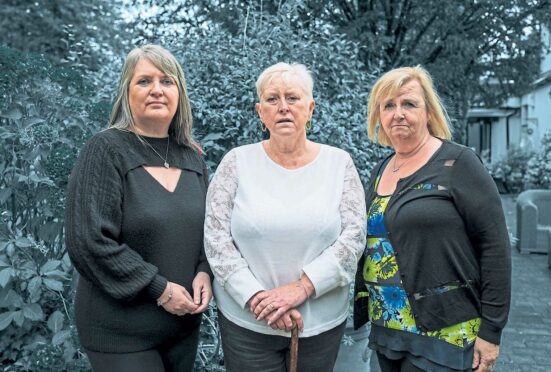
New calls for urgent action to introduce a life-saving test for mothers-to-be in Scotland is increasing pressure on ministers to appoint the country’s first Women’s Health Champion.
The appointment was said to be pivotal when the Scottish Government’s plan to improve healthcare for women was announced last year. However, it later emerged the position might not be filled for three years.
After The Post raised the voices of patients and leading charities demanding the appointment was made urgently, First Minister Nicola Sturgeon promised a champion, to protect and improve health services for women, would be appointed “by the end of the summer”. Women endure poorer care and outcomes across a range of conditions including heart attacks, strokes and some cancers.
England announced a Women’s Health Ambassador – leading gynaecologist Professor Dame Lesley Regan – in June to support the implementation of its forthcoming Women’s Health Strategy.
Now, months after we revealed calls for Scotland to follow England and many other countries around the world to introduce a simple, cheap test to identify pregnant women at risk of life-threatening pre-eclampsia, more women are demanding action.
The test, called PlGF, is able to detect women at risk of the condition linked to dangerously high blood pressure that risks the lives of mothers and babies.
Adele Davidson, 27, from Bridge of Don, who became dangerously ill last September shortly before her baby son was born, said: “How long do women have to become seriously ill before adequate care and attention is given to us?
“I developed pre-eclampsia, which threatened to kill me and my son, Odin. The test to diagnose it early is available in England, but not Scotland. We need a Women’s Health Champion to ensure the best of care for all women. Surely, that must be a priority.”
The demands to appoint a promised Women’s Health Champion in Scotland come as research suggests the number of years women in Scotland can expect to live in good health has fallen. The British Medical Journal suggested there has been no change in England, Wales and Northern Ireland.
Earlier this year, we reported an open letter from 17 leading charities calling for a Women’s Health Champion to be appointed swiftly. In an open letter to women’s health minister Maree Todd, the charities – including Alzheimer’s Scotland, British Menopause Society and Chest Heart and Stroke Scotland – said women should not wait any longer. The charities cited alarming gaps and inequalities.
Baroness Julia Cumberlege, the author of a review laying bare the betrayal of women by the medical establishment, described the failure to take action on her recommendations – including the appointment of a Patients’ Safety Commissioner – as “deeply disappointing”.
Scottish Labour Women’s Health spokesperson Carol Mochan said: “The longer the SNP drag their feet delivering the Women’s Health Plan, the longer women in Scotland will continue to be failed.
“This appointment must be made with the urgency needed, and crucially this job must be backed up by real action and investment across the board to transform women’s healthcare.”
The Scottish Government said: “It remains our intention to appoint the Women’s Health Champion this summer.”
On the screening for pre-eclampsia, it said: “The Scottish Government is determined to ensure women receive high-quality, safe care including in the diagnosis, prevention and treatment of pre-eclampsia. We are working with the Scottish Perinatal Network to examine the adoption of PlGF testing for pre-eclampsia in Scotland. This will include consideration of the National Institute for Clinical Excellence guidance on PlGF (DG23) published on July 27, 2022.”
I was so ill that doctors had no choice but deliver my girl
Nurse Eryn MacLeod almost died during her pregnancy after suffering pre-eclampsia.
Now she is backing calls for Scotland to urgently follow England and many other countries to introduce a simple, cheap test that identifies the life-threatening condition.
MacLeod, an acute medicine nurse, revealed how she became so seriously ill she was rushed to high dependency at Raigmore Hospital in Inverness, with liver and kidney problems before her daughter was born 12 weeks early to save both their lives.
The new mum, from Lochinver, Sutherland, said: “Matilda was not due for another 12 weeks but pre-eclampsia caused my kidney and liver function to deteriorate so badly, doctors had no choice but to deliver her early even if it meant forcing her to struggle with the rigours of premature birth.
“Delivering her is what saved me, because it stops the pre-eclampsia escalating but Matilda’s struggle to survive ICU was compromised because she was a small baby of 2lbs 1oz because of the pre-eclampsia.
“The test should be available to all mums at risk of pre-eclampsia to allow doctors to act quickly and prevent serious illness and hopefully premature births.”
Pre-eclampsia affects the placenta and consequently, babies’ growth. Giving mums the PlGF test from 20 weeks in pregnancy allows doctors to identify at risk mums and intervene to prevent dangerously high blood pressure.
“Delivering the baby allows a mother’s blood pressure to slowly improve over the next few weeks,” MacLeod added. “As I nurse I was very aware of what was going on, especially when they phoned the on-call consultant to come in at 2am.”

Enjoy the convenience of having The Sunday Post delivered as a digital ePaper straight to your smartphone, tablet or computer.
Subscribe for only £5.49 a month and enjoy all the benefits of the printed paper as a digital replica.
Subscribe





